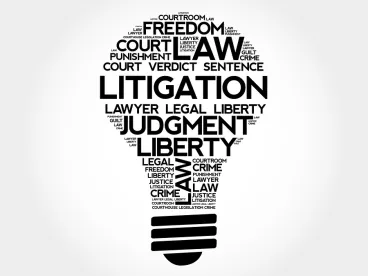In Personal Audio LLC v. Electronic Frontier Foundation, the Federal Circuit ruled that an IPR petitioner does not need to satisfy Article III standing requirements in order to participate in a patent owner’s appeal from a Patent Trial and Appeal Board decision in an IPR proceeding. This ruling on appellee standing complements the decision in Phigenix v. Immunogen finding that an IPR petitioner did not have standing to appeal.
The Consumer Watchdog Decision
The Federal Circuit had asked the parties to brief the standing issue in view of the decision in Consumer Watchdog v. Wisconsin Alumni Research Foundation, 753 F.3d 1258 (Fed. Cir. 2014). In that case, the court held that a petitioner in an inter partes reexamination proceeding must meet the Article III case-or-controversy requirement in order to have standing to appeal. As the Federal Circuit noted in this case, “[t]he court in Consumer Watchdog stated that ‘although Article III standing is not necessarily a requirement to appear before an administrative agency, once a party seeks review in a federal court, ‘the constitutional requirement that it have standing kicks in.'”
No Article III Appellee Standing Requirement
The Federal Circuit opinion was authored by Judge Newman and joined by Judges Clevenger and O’Malley.
The Federal Circuit opinion states that Consumer Watchdog does not answer this standing issue, because it addressed the standing of the appellant, not the appellee. The opinion cites two Supreme Court decisions for the proposition that standing requirements do not apply to appellees:
The Court explained in ASARCO Inc. v. Kadish, 490 U.S. 605 (1989), in an appeal from the Arizona Supreme Court to the United States Supreme Court, that standing to appeal is measured for the party “seek[ing] entry to the federal courts for the first time in the lawsuit”
*****
The following year, in U.S. Department of Labor v. Triplett, 494 U.S. 715, 732 (1990), Justice Marshall explained in concurrence that: “Because respondent has not invoked the authority of any federal court, then, federal standing principles are simply inapplicable to him.”
In view of this Supreme Court guidance, the Federal Circuit concluded:
Here, the party invoking judicial review is Personal Audio; it is apparent that Personal Audio, on cancellation of its patent claims by the PTAB, has experienced an alteration of “tangible legal rights . . . that is sufficiently ‘distinct and palpable’ to confer standing under Article III.” …. With Article III satisfied as to the appellant, EFF is not constitutionally excluded from appearing in court to defend the PTAB decision in its favor.
The court proceeded to review the PTAB decision on the merits, and affirmed the ruling that claims 31-35 of U.S. Patent 8,112,504 are unpatentable.




 />i
/>i

